Hyundai i30 Wagon vs SEAT Leon SP Sportstourer – Performance, range & efficiency compared
Both models have their strengths – but which one suits you more?
Compare performance, efficiency, price and space directly: Hyundai i30 Wagon or SEAT Leon SP Sportstourer?
Costs and Efficiency:
When it comes to price and running costs, the biggest differences usually appear. This is often where you see which car fits your budget better in the long run.
Hyundai i30 Wagon has a slight advantage in terms of price – it starts at 24800 £, while the SEAT Leon SP Sportstourer costs 25800 £. That’s a price difference of around 986 £.
Fuel consumption also shows a difference: SEAT Leon SP Sportstourer manages with 0.30 L and is therefore significantly more efficient than the Hyundai i30 Wagon with 5.70 L. The difference is about 5.40 L per 100 km.
Engine and Performance:
Power, torque and acceleration are the classic benchmarks for car enthusiasts – and here, some clear differences start to show.
When it comes to engine power, the SEAT Leon SP Sportstourer has a significantly edge – offering 272 HP compared to 140 HP. That’s roughly 132 HP more horsepower.
In acceleration from 0 to 100 km/h, the SEAT Leon SP Sportstourer is distinct quicker – completing the sprint in 7.90 s, while the Hyundai i30 Wagon takes 9.80 s. That’s about 1.90 s faster.
In terms of top speed, the SEAT Leon SP Sportstourer performs a bit better – reaching 220 km/h, while the Hyundai i30 Wagon tops out at 197 km/h. The difference is around 23 km/h.
There’s also a difference in torque: SEAT Leon SP Sportstourer pulls clearly perceptible stronger with 360 Nm compared to 253 Nm. That’s about 107 Nm difference.
Space and Everyday Use:
Beyond pure performance, interior space and usability matter most in daily life. This is where you see which car is more practical and versatile.
Both vehicles offer seating for 5 people.
In curb weight, Hyundai i30 Wagon is slight lighter – 1316 kg compared to 1384 kg. The difference is around 68 kg.
In terms of boot space, the SEAT Leon SP Sportstourer offers minimal more room – 620 L compared to 602 L. That’s a difference of about 18 L.
In maximum load capacity, the Hyundai i30 Wagon performs barely noticeable better – up to 1650 L, which is about 50 L more than the SEAT Leon SP Sportstourer.
When it comes to payload, SEAT Leon SP Sportstourer slight takes the win – 569 kg compared to 524 kg. That’s a difference of about 45 kg.
Who comes out on top?
Overall, the SEAT Leon SP Sportstourer shows itself to be leaves the rival little chance and secures the title of DriveDuel Champion.
It convinces with the more balanced overall package and proves to be the more versatile choice for everyday use.
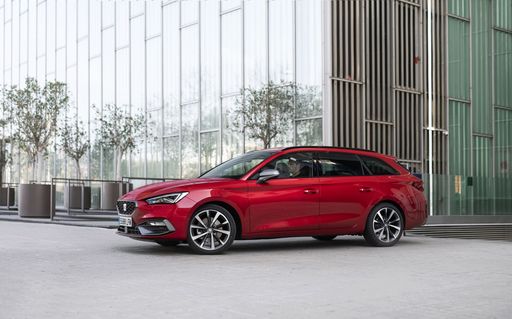 @ Seat
@ Seat
SEAT Leon SP Sportstourer
Hyundai i30 Wagon
The Hyundai i30 Wagon offers a blend of practicality and style, making it a popular choice for families and those in need of extra space. Its sleek exterior and comfortable interior provide a pleasant driving experience, while advanced safety features ensure peace of mind on the road. The i30 Wagon stands out with its impressive fuel efficiency and reliability, catering to both urban and rural lifestyles.
details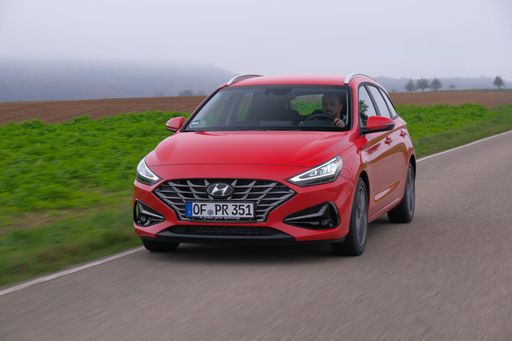 @ hyundai.news
@ hyundai.news
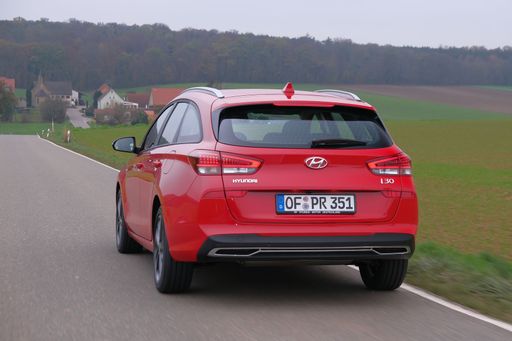 @ hyundai.news
@ hyundai.news
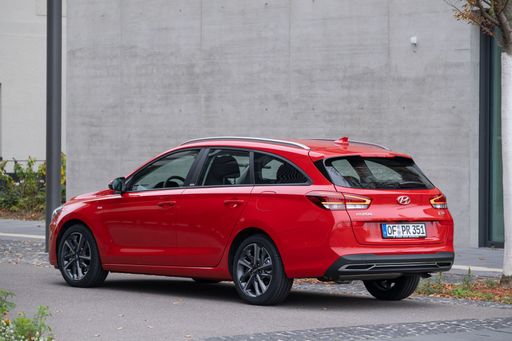 @ hyundai.news
@ hyundai.news
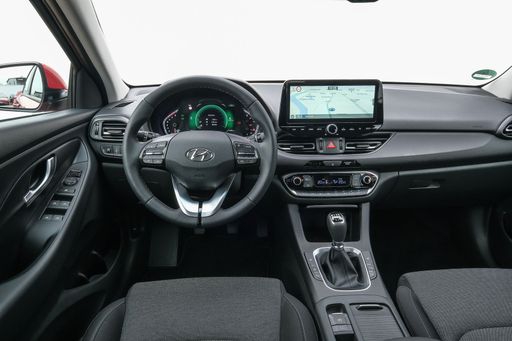 @ hyundai.news
@ hyundai.news
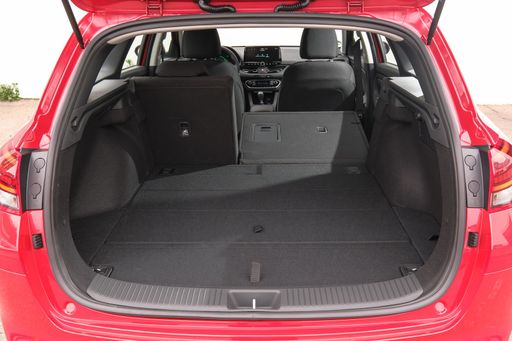 @ hyundai.news
@ hyundai.news
SEAT Leon SP Sportstourer
The SEAT Leon SP Sportstourer exudes a sleek and dynamic design, merging practicality with style effortlessly. Inside, the spacious and versatile interior ensures a comfortable ride for both driver and passengers, offering ample space for luggage and family needs. With its advanced technology and efficient performance, the Leon SP Kombi stands out as a superb choice for those seeking a reliable and modern family estate.
details @ Seat
@ Seat
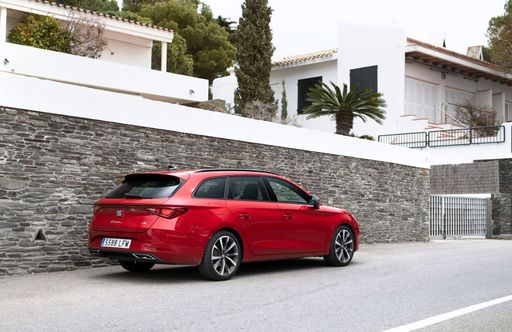 @ Seat
@ Seat
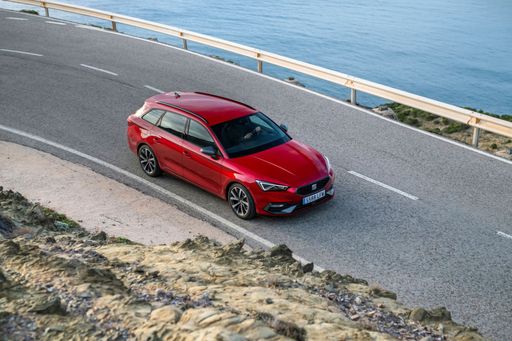 @ Seat
@ Seat
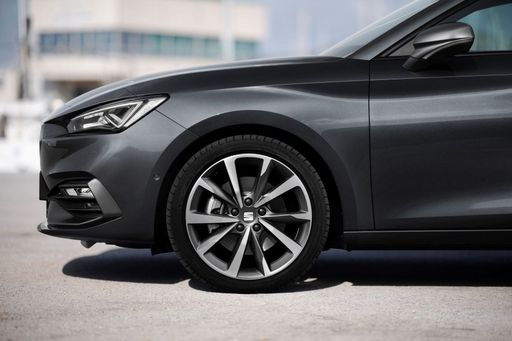 @ Seat
@ Seat
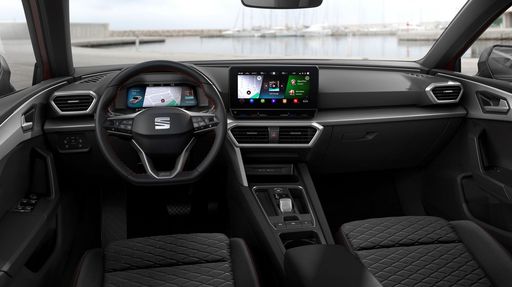 @ Seat
@ Seat
 @ hyundai.news
@ hyundai.news
|
 @ Seat
@ Seat
|
|
|
|
Costs and Consumption |
|
|---|---|
|
Price
24800 - 30100 £
|
Price
25800 - 37900 £
|
|
Consumption L/100km
5.7 - 6 L
|
Consumption L/100km
0.3 - 5.7 L
|
|
Consumption kWh/100km
-
|
Consumption kWh/100km
-
|
|
Electric Range
-
|
Electric Range
131 - 132 km
|
|
Battery Capacity
-
|
Battery Capacity
19.70 kWh
|
|
co2
130 - 136 g/km
|
co2
7 - 130 g/km
|
|
Fuel tank capacity
50 L
|
Fuel tank capacity
40 - 45 L
|
Dimensions and Body |
|
|---|---|
|
Body Type
Estate
|
Body Type
Estate
|
|
Seats
5
|
Seats
5
|
|
Doors
5
|
Doors
5
|
|
Curb weight
1316 - 1461 kg
|
Curb weight
1384 - 1716 kg
|
|
Trunk capacity
602 L
|
Trunk capacity
470 - 620 L
|
|
Length
4585 mm
|
Length
4642 mm
|
|
Width
1795 mm
|
Width
1799 mm
|
|
Height
1475 mm
|
Height
1437 - 1456 mm
|
|
Max trunk capacity
1650 L
|
Max trunk capacity
1450 - 1600 L
|
|
Payload
439 - 524 kg
|
Payload
414 - 569 kg
|
Engine and Performance |
|
|---|---|
|
Engine Type
Petrol, Petrol MHEV
|
Engine Type
Petrol, Petrol MHEV, Diesel, Plugin Hybrid
|
|
Transmission
Manuel, Automatic
|
Transmission
Manuel, Automatic
|
|
Transmission Detail
Manual Gearbox, Dual-Clutch Automatic
|
Transmission Detail
Manual Gearbox, Dual-Clutch Automatic
|
|
Drive Type
Front-Wheel Drive
|
Drive Type
Front-Wheel Drive
|
|
Power HP
100 - 140 HP
|
Power HP
110 - 272 HP
|
|
Acceleration 0-100km/h
9.8 - 13.3 s
|
Acceleration 0-100km/h
7.9 - 10.8 s
|
|
Max Speed
178 - 197 km/h
|
Max Speed
197 - 220 km/h
|
|
Torque
172 - 253 Nm
|
Torque
220 - 360 Nm
|
|
Number of Cylinders
3 - 4
|
Number of Cylinders
3 - 4
|
|
Power kW
74 - 103 kW
|
Power kW
85 - 200 kW
|
|
Engine capacity
998 - 1482 cm3
|
Engine capacity
1498 - 1968 cm3
|
General |
|
|---|---|
|
Model Year
2024
|
Model Year
2024 - 2025
|
|
CO2 Efficiency Class
D, E
|
CO2 Efficiency Class
D, B
|
|
Brand
Hyundai
|
Brand
SEAT
|
What drivetrain options does the Hyundai i30 Wagon have?
Available configurations include Front-Wheel Drive.
The prices and data displayed are estimates based on German list prices and may vary by country. This information is not legally binding.
